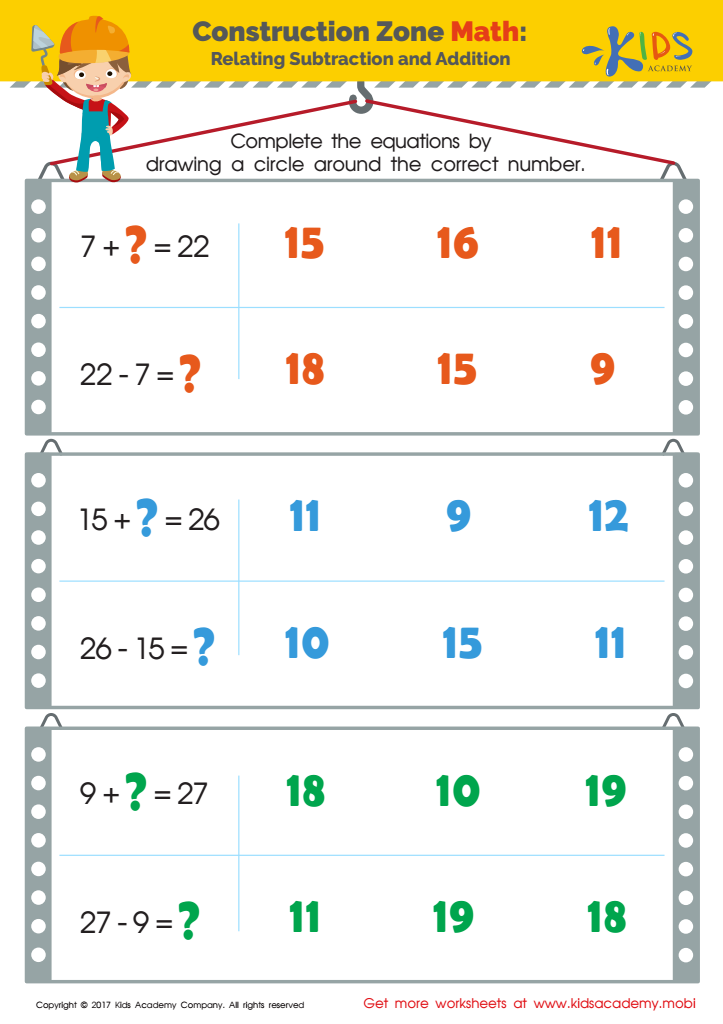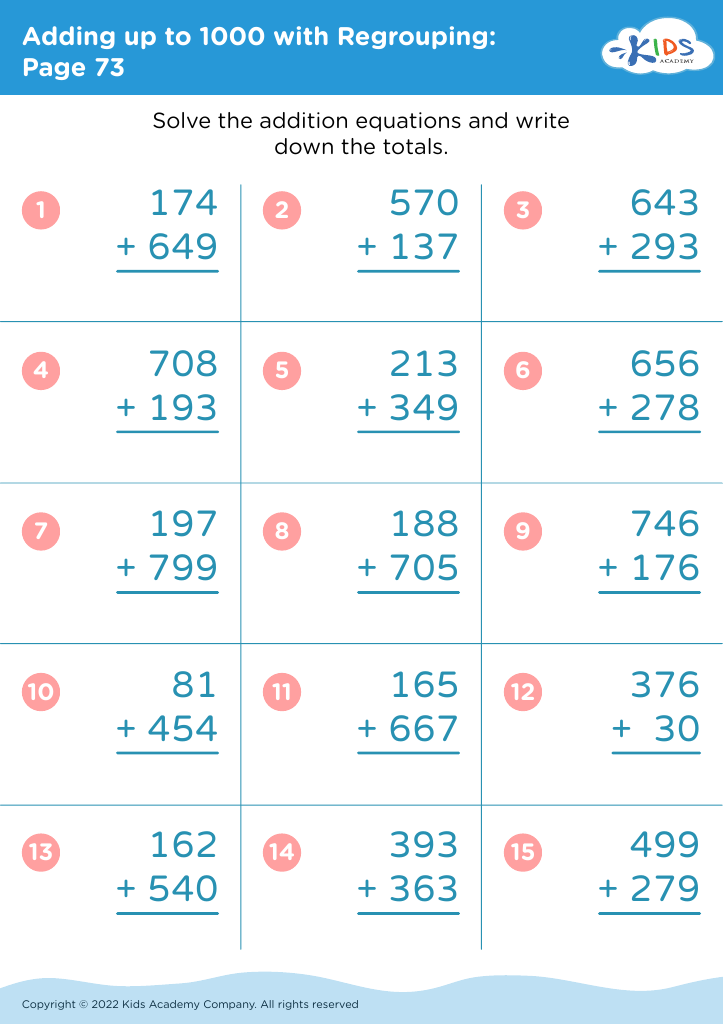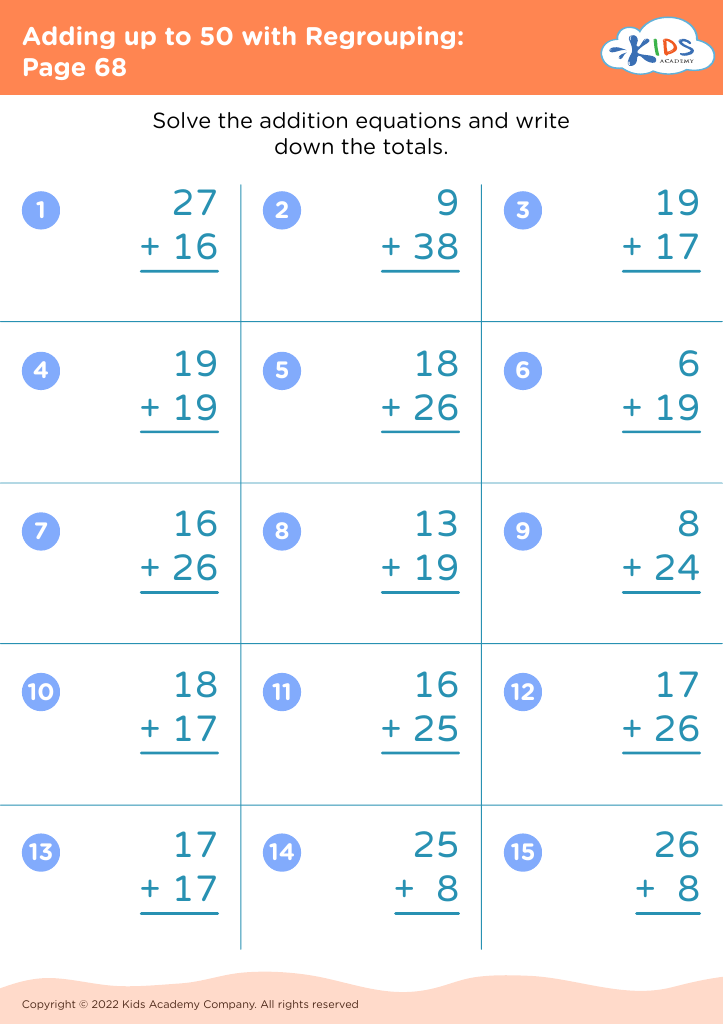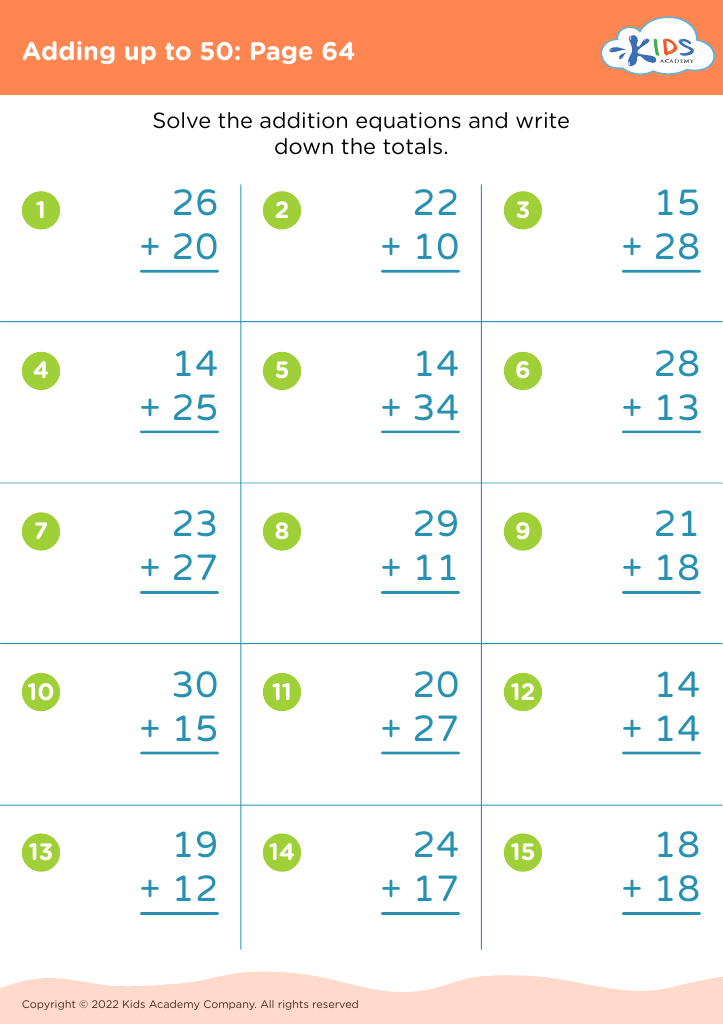Developing logical thinking Addition & Subtraction Worksheets for Ages 5-8
4 filtered results
-
From - To
Welcome to our "Developing Logical Thinking: Addition & Subtraction Worksheets for Ages 5-8" page! Here, young learners will find engaging worksheets designed to nurture their logical reasoning alongside essential math skills. Our fun and interactive exercises encourage children to think critically as they solve addition and subtraction problems, improving their cognitive abilities and numerical understanding. Perfect for parents and educators, these worksheets can be used at home or in the classroom to support children’s mathematical growth. Foster a love for math and logical thinking in your little ones with our colorful, well-structured, and age-appropriate resources that make learning enjoyable!


Related Addition and Subtraction Facts Worksheet
Logical thinking is a foundational skill that aids children's cognitive development, particularly in mathematics. Fostering addition and subtraction skills from ages 5-8 helps children build a strong base for more complex mathematical concepts later in their education. Understanding these basic operations is crucial not just for academic success, but also for everyday problem-solving skills.
When parents and teachers emphasize logical thinking in addition and subtraction, they encourage children to approach problems critically. This stage of development involves recognizing patterns, making connections, and using reasoning to arrive at answers—skills that are transferable to other subjects and life situations. Moreover, mastering these basic operations allows children to gain confidence in their abilities, encouraging them to tackle more challenging math problems in the future.
Additionally, integrating logical thinking in math promotes active participation and engagement. Fun activities, such as games and hands-on exercises, capture children's attention, making learning enjoyable. Ultimately, investing in these skills enhances children’s overall cognitive development, preparing them for academic challenges ahead, and instilling a lifelong appreciation for learning and critical thinking. This support from parents and teachers is vital in equipping children with the tools, confidence, and skills they need for future success.




 Assign to My Students
Assign to My Students



















